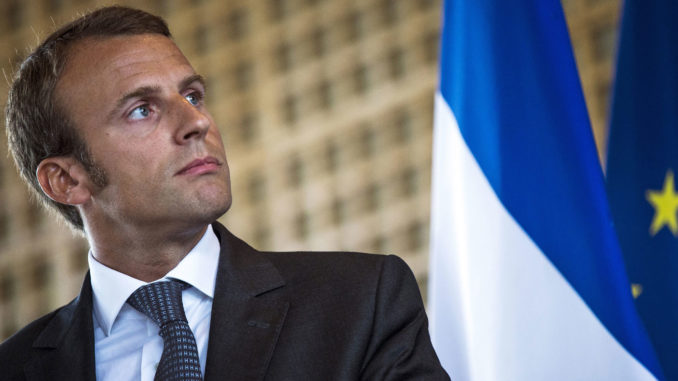
Emmanuel Macron won a clear victory 66% to 34% over Marine Le Pen in the closing round of the French elections for President on Sunday, May 7. The 34% of Marine Le Pen represents some 25% of the hard-right votes joined by 10% of nationalists who had voted for other candidates in the first round. Twenty-five percent is the usual but growing percentage of votes for Le Front National (The National Front) in French parliamentary elections and in elections for the European Parliament. Le Front National (FN) was created in 1972 by Mariene’s father, Jean-Marie Le Pen who had been in the second round of the Presidential election of 2002 getting 18% of the vote against Jacques Chirac.
The early supporters of Jean-Marie Le Pen came from those who had wanted to keep Algeria French and who considered that Charles De Gaulle had betrayed them by granting independence to Algeria in 1962, followed by a massive flow of people of European decent – French, Italians and Spanish – to leave and go to France. Jean-Marie Le Pen also picked up some support from those favorable to the 1940-1944 Government of Vichy. This aging population had never liked De Gaulle. The FN was considered by some political analysts as a proto-fascist movement and had attracted into membership some “skinheads” who loved uniforms and fights against Arabs and police.
When Marine Le Pen inherited the movement from her father, she eased out the “skinheads” and downplayed references to the Vichy government. She kept however the emphasis on the dangers of immigration from Arab countries and the danger of “radical Islam” which often came to be seen by Le Pen and her followers as the danger of Islam in any form. For the presidential campaign, she had to broaden her themes somewhat and developed a wider nationalist platform, against the European Union which had opened the doors to “uncontrolled globalization” and immigration not only from Arab countries but also from “Polish workers.”
In many ways the 2017 campaign and election did not follow the usual Left-Right division but rather a new division: “Open to the World – the builders of bridges” and “Closed to the World – the builders of walls.” The two political parties which have governed France since 1965 when De Gaulle instituted the direct election of the president – the Socialists for the Left, the inheritors of De Gaulle (who kept changing the party’s name) on the Right – were eliminated after the first round. The FN has always been more of an ideology-based movement rather than a political party which administers government at different levels, local, departmental and national. Likewise, Emmanuel Macron created two years ago what became a victorious effort called En March (Forward). The movement has supporters at the three levels but no elected officials or permanent party workers. We will have to see how Macron can transform local supporters into national-level elected members of Parliament. The elections for Parliament will take place in late June.
Marine Le Pen, in the two weeks after the first round with only Macron to attack, focused on painting Macron as the candidate of uncontrolled globalization, of the well-off inhabitants of the cities, of the young (Macron at 39 will be the youngest person elected President of France), of the highly educated, and of the banks. Macron had spent several years in the Rothschild investment bank. The image dear to some of the French Right of Jewish finance was not used in public meetings, but if one stresses the name Rothschild the connection is made without having to say so.
Marine Le Pen presented herself as the “voice of the people,” the forgotten workers and farmers, the retired who have difficulty making ends meet on their pensions, of the citizens who live in fear of being robbed by Arabs. Hers was to be a nationalism that protected the weak, the motherland as a “mother figure” taking all the French into her arms against an outside world that was increasingly seen as dangerous. If one did not have a sense of irony, her presentation was often well delivered. However, hate was never far away in her voice.
Sociological analysis of the voting pattern of the first round did confirm the power of Marine’s appeal: the large cities and areas of a relatively prosperous industrial or agricultural base, often export oriented, voted Macron; the poorer rural areas and the French equivalent of the US rust belt voted Le Pen.
Macron now has the necessary task of establishing some trust and reconciliation between the bridge-builders and the wall-builders. The term “renewal” is his ideological motor. The previous four Presidents – Francois Mitterand, Jacques Chirac, Nicolas Sarkozy, and Francois Hollande had all used the term “reform” as their aim – reform of institutions, programs and policies. None of the reforms modified life to any deep degree. The level of structural unemployment has remained largely the same. There has been a continuing exodus from the rural areas. Much of youth remains sidelined. The early hope that the European Union and the end of the Cold War would change the international situation has largely dissolved. Thus, the emphasis of Macron is on renewal – a new society on new foundations rather than a reform of existing institutions and policies. “We must write a new page,” was his cry as he ended his campaign.
Rene Wadlow is the President of the Association of World Citizens.
